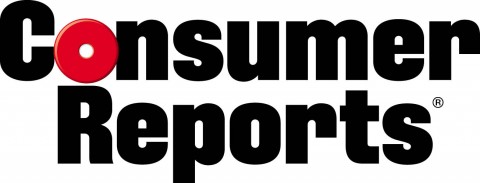 Yonkers, NY – It’s easier than ever to get burned these days—in fact fraud and identity-theft complaints tracked by the Federal Trade Commission topped 1.2 million last year, up 19 percent from 2010 and a whopping 800 percent since 2000. And the fraud artists are using new channels and technology that didn’t exist 15 years ago including social media, pop-up ads on your computer, and text-message “smishing” scams.
Yonkers, NY – It’s easier than ever to get burned these days—in fact fraud and identity-theft complaints tracked by the Federal Trade Commission topped 1.2 million last year, up 19 percent from 2010 and a whopping 800 percent since 2000. And the fraud artists are using new channels and technology that didn’t exist 15 years ago including social media, pop-up ads on your computer, and text-message “smishing” scams.
According to Consumer Reports’ investigation, available on www.ConsumerReports.org on August 30th and in the October issue of Consumer Reports on newsstands September 4th, two other factors compound this problem.
The first is that according to experts, the need for law enforcement to pursue terrorists has shifted FBI resources from fraud cases. And making the problem even more difficult for consumers is the trend toward “last dollar” fraud, aimed at taking the last dollar from the unemployed or underemployed.
“Fraud operates like a business these days,” said Jeff Blyskal, Sr. Editor, Consumer Reports. “It’s as if thieves have their own Research and Development departments looking into the latest technologies and figuring out new ways to trick you. And the Internet makes it’s easier to reach and market their schemes to people than ever before. Even if they only fool a small percentage of people, that’s still a lot of victims.”
Here are some of the latest high-tech scams and what you can do to prevent getting ripped off by them:
We’ll remove the virus we found for $100.00. Some scoundrels fly under the radar via telephone. A tech-support person, purportedly from a trusted company like Dell or Microsoft, calls to warn you that its security systems have remotely detected a virus on your computer and offers to remove it—for a fee of $100.00 or more. Of course, there is no virus, so you pay for unnecessary service. The crook may also take the opportunity to install mock antivirus software that later starts “finding” nonexistent malware. That can cost you a bundle for removal. Worse, the tech may also install software that scans your computer to steal your passwords and hijack your computer to generate ads and spread spam.
Protect yourself: Find legitimate antivirus and antimalware software that Consumer Reports has rated, install it on your PC, and keep it up to date. Hang up on anyone outside your home who claims to find trouble on your PC.
You could win an iPad. Start bidding! Hot electronics are commonly used to entice victims into a shakedown. A pop-up ad on your computer invites you to bid on an iPad, laptop PC, or wide-screen TV, but you must include your cell-phone number to play. Submitting your bid sends a text message to your cell phone that, whether you respond or not, may authorize an unwanted $9.99 a month subscription to some useless service. The charge gets tacked onto your cell-phone bill, where you’re unlikely to notice it.
Protect yourself: Guard your cell-phone number like a credit card; don’t give it to strangers. Demand refunds from your cell provider if you’ve been crammed. Tell your wireless and landline carriers to block all third-party billing to your account, and check previous bills for cramming charges.
Buy a gourmet dog-food coupon worth $61.00—for just $16.00. You receive an e-mail that alerts you to a website—not the manufacturer’s—where you can purchase high-value coupons. They’re not your typical 25 cents off but special coupons for $2.00 to $60.00 off or free high-priced products like shaving razors, pricey pet food, diapers, infant formula, coffee, and even restaurant meals. Such giveaways are rarely circulated, but manufacturers do use them to introduce new products or as a goodwill gesture to win back a wronged customer. The problem is there’s no way anyone can accumulate enough of those rare coupons to make a business of it, so the ones hawked through websites are likely to be counterfeit or stolen.
Protect yourself: Avoid such coupons.
OMG. Now you really can see who views your Facebook profile!!! Social-media networks are fertile ground for fakery. You might have received news-feed messages from Facebook friends raving about an app that claims to let you see who’s checking out your profile. Such messages can be spam in disguise, leading to “bait pages.” Other bait involves bizarre or salacious videos. Consumers who take the bait never get the promised software or film.
Instead, the link drives the curious to a fake Facebook website. You’re asked to “like” the app or other bait, which forwards the spam to all of your friends. Then you have to complete a survey, which collects personal information and opinions.
Protect yourself: Don’t reveal personal information online to anyone who initiated contact with you unless your trust is certain. Look for the survey company’s name and go to its website independently by reopening your browser, or call it. Ignore product promos from Facebook friends. Use caution in granting access to your profile. And think before you “like.”
About Consumer Reports
Consumer Reports is the world’s largest independent product-testing organization. Using its more than 50 labs, auto test center, and survey research center, the nonprofit rates thousands of products and services annually. Founded in 1936, Consumer Reports has over 8 million subscribers to its magazine, website and other publications. Its advocacy division, Consumers Union, works for health reform, food and product safety, financial reform, and other consumer issues in Washington, D.C., the states, and in the marketplace.


